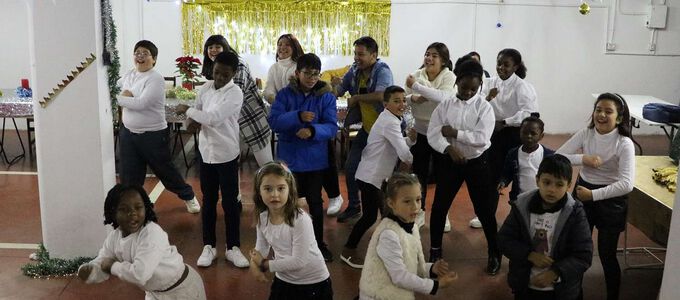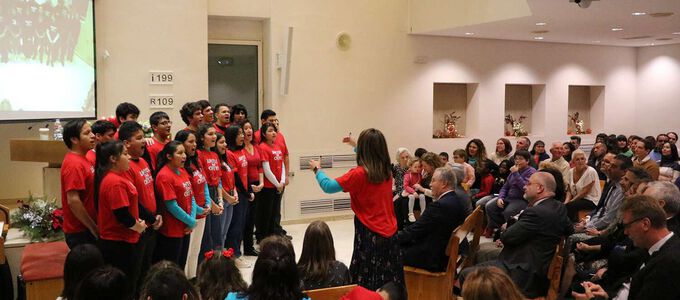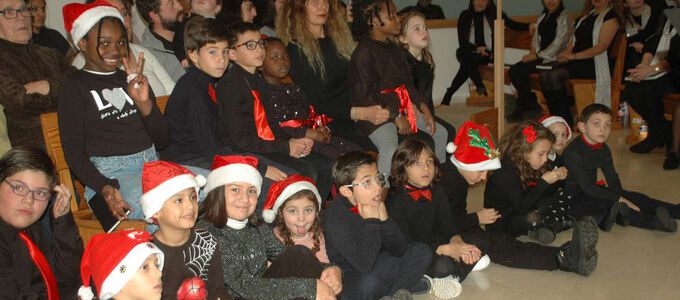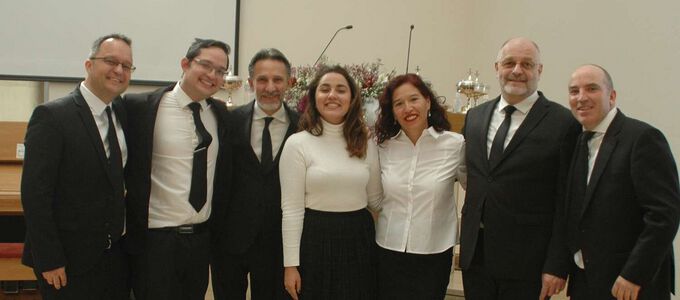
The fun facts on nak.org have been slightly revised. The congregation in Madrid, Spain, is currently the congregation with the most nationalities. Thanks to Jesus, this works.
Apostle Rolf Camenzind is browsing through the Church’s website nak.org. He lingers for a moment at the page featuring some Fun Facts. A few superlatives are listed there. Besides the largest church building or the congregation with the highest altitude, Singapore is ranked as the congregation with the most nationalities, namely thirteen. This is where the Apostle stops. Being responsible for Spain, the Apostle is fairly sure that the congregation in Madrid, the Spanish capital, has more to show than just thirteen nationalities. He decides to look into it. And indeed, he receives confirmation from Madrid that the congregation is made up of people from twenty different countries. Twenty different nationalities enhance cultural pluralism and diversity, but also pose challenges.
From all over the world to Spain
Already the very first New Apostolic congregation in Spain consisted of people from different countries. Deacon Juan Reverter from Switzerland had been asked to go to Spain to try and find people interested in the New Apostolic faith. He moved to Barcelona and conducted divine services there every Sunday. When District Apostle Ernst Güttinger from Switzerland visited the congregation in January 1948, Juan Reverter was ordained as a Priest and the congregation was officially established. Over the years, other ministers came to support the small congregation. They came from Switzerland, France, and later also from Argentina, so that the Spanish brothers and sisters heard their mother tongue more often in the services.
Since 1964 there have also been New Apostolic brothers and sisters in Madrid. The first brother in Madrid was Swiss. Soon, ministers from the Netherlands and Germany helped to look after the growing congregation. Later, New Apostolic people from Switzerland came to Madrid and in the mid 1990s, brothers and sisters from South America and Africa arrived. The growing congregation moved into its own premises on Calle Belisana in 1975. Eventually a new church was built on the same property and dedicated by District Apostle Peter Dessimoz in April 1990.
Today, the Madrid Centro congregation has around 250 active brothers and sisters.
The gospel is the same everywhere
The retired Bishop Pedro Olmedo was rector of the congregation for several years and is now enjoying his retirement there. He can confirm that the different nationalities blend well: “We always do our best to make everyone feel integrated into congregational life.” He says that it is important to be empathetic and live the gospel of Jesus Christ. “It is the same all over the world.” The rector, Uli Kaim, is an example in this. He treats all members the same: with patience, love, and understanding. And something else that is very important: the native German speaks perfect Spanish. This is the language in which the divine services are conducted and in which people speak to one another. The vast majority know Spanish. “Those who come from other parts of Europe or from African countries learn the language quickly,” says Bishop Olmedo.
Happy to be in Spain
Many of the more recent members did not have to learn a new language at all. They come from countries in South America where Spanish is the official language. Many have come to Spain because of the better economic situation there. But why Madrid then? Quite simply, there is a big international airport where migrants from all continents first land. “And even more important is that Madrid as a city is very hospitable to all who arrive,” Bishop Olmedo explains.
The international make-up is a wealth
The congregation in Madrid is made up of people from six African countries, namely Angola, Equatorial Guinea, Democratic Republic of Congo, Ivory Coast, Senegal, and South Africa. Then there are those from the Americas, namely Argentina, Bolivia, Ecuador, Colombia, Peru, Uruguay, and Venezuela. And the following seven European countries are also represented: Germany, Moldova, Netherlands, Romania, Russia, Switzerland, and of course Spain.
This international character is very enriching. At events, the brothers and sisters like to become involved and bring in their customs and traditions. At Christmas, for example, the congregation loves to get together and cook and enjoy dishes from their countries of origin. “It is a joyful, lively, active, and welcoming congregation,” is how Bishop Olmedo describes the congregation in Madrid.




















